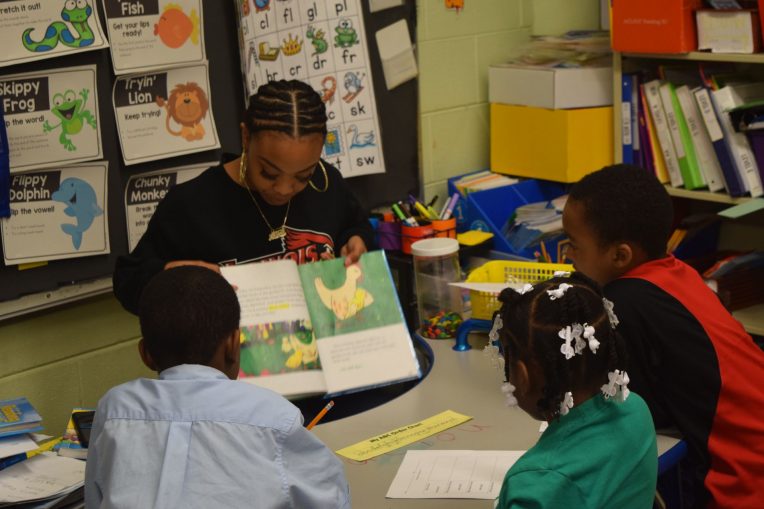The Innovative Network of Urban Special Educators (INFUSE) program is a faculty developed sequence in the Department of Special Education (SED) that includes urban education and special education focused classes for pre-service teachers. Courses in the sequence incorporate culturally responsive pedagogy, anti-racist teaching, social justice awareness, and traditionally, a trip to Chicago for activities in the schools and with community partner organizations.
As part of a grant through the National Center for Urban Education (NCUE), faculty typically went through an intensive training intended to help guide them as they redesigned their courses with an urban focus. Dr. Debbie Shelden and Dr. Mark Zablocki, both associate professors, were part of that first group of faculty members to build the INFUSE program and both feel passionately about being able to offer these courses to pre-service teachers.
“We started INFUSE as a systematic way to have special education courses tagged as focusing on urban education in the course catalog,” said Zablocki. “As funding has changed recently, we wanted to ensure that SED faculty continued to have the opportunity to focus on incorporating urban education and culturally responsive teaching into their courses so we started a faculty learning community with the hopes of growing this program even more.”
With faculty and funding changes over the past few years, just a few courses focused on urban education and culturally responsive teaching this past year. Organized by Shelden and Zablocki, several SED faculty participated in a learning community to re-invigorate discussions around course redesigns for the INFUSE program. The self-study group brings faculty together once a month to discuss readings on anti-racist teaching and culturally responsive pedagogy and to give each other feedback about what is working or not working in their own teaching. In addition, a few faculty from the learning community applied to participate in a CTLT summer course focused on course redesign.
“The INFUSE learning community provided me with additional resources that I could bring into my class section,” said Dr. Allison Kroesch, assistant professor in SED. “Additionally, this community of individuals challenges the way I think about the supports and literature I provide to students in my class sections. This semester, while working with INFUSE and NCUE, I provided my SED 344 general education pre-service teachers with guest speakers from Albany Park. Our presenters discussed restorative justice practices and co-teaching opportunities within their high school building, a practice that many of these pre-service teachers will utilize in their own classrooms in the near future. By applying for the CTLT summer course, I hope to continue to further my development in the area of culturally responsive pedagogy.”
Shelden and Zablocki are currently working on a proposal to host an intensive training for their SED colleagues that would be modeled on the training that was available when INFUSE was first developed. The week-long training will include faculty making connections with NCUE and community partners. Learning about urban schools, communities and community partners will help faculty gain a deeper understanding of urban education and how they can redesign their own courses.
Through their work with INFUSE, Shelden and Zablocki wanted to lead the way in incorporating culturally responsive teaching and leading practices into all SED courses. They paused that project while they waited for the state of Illinois to finalize plans for culturally responsive teaching standards in teacher education programs. Now that the state has passed the legislation that guides those practices, Shelden and Zablocki are also leading the way in SED to ensure that all SED courses meet the new standards. This summer, they will host a work group with the intention of developing the project management plan. The group will be tasked with mapping out a plan, curriculum work, and preparing for faculty professional development. They will also gather feedback from SED faculty on the knowledge and skills that need to be developed at the group and individual levels.
“We don’t have to have our courses aligned with those new standards until 2025, but we feel that these are very important standards that we already should have been meeting,” said Shelden. “We definitely don’t want to wait to implement these standards so we hope that through the work group, we’ll have curriculum proposals submitted in the next two years that reflect these standards.”
When asked what they have learned through their work with INFUSE and starting the conversations about redesigning curriculum to meet the new standards, they stressed the importance of humility and understanding that everyone is at their own stage of the process in implementing culturally responsive teaching.
For questions, comments and collaboration, please reach out to Dr. Shelden and Dr. Zablocki via email.

